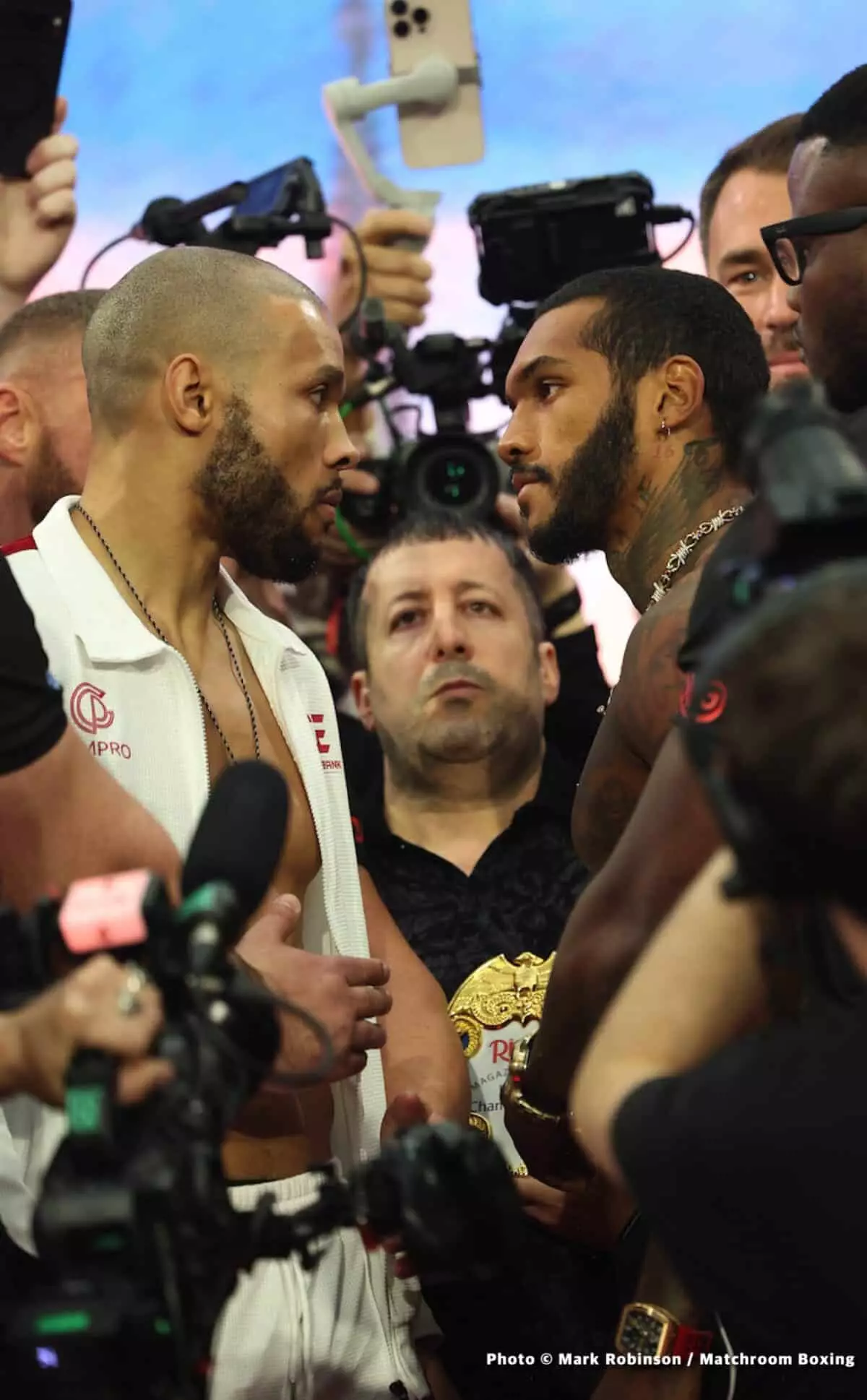In the boxing world, the weigh-in is typically a straightforward yet crucial aspect of pre-fight protocol, designed to ensure fighter safety and fair competition. However, Chris Eubank Jr.’s recent slip at the scales has transformed what should have been a routine event into a spectacle of drama, prompting sharp criticism from promoter Eddie Hearn. Coming in just half an ounce overweight for his bout against welterweight Conor Benn, Eubank Jr. certainly raised eyebrows—and not just because he skirted the weight limit. This oversight, though minimal in numerical terms, carries considerable implications amidst the high-stakes environment surrounding this anticipated matchup at the Tottenham Hotspur Stadium.
Eddie Hearn expressed his disappointment not solely in the missed weight but in Eubank Jr.’s apparent lack of professionalism leading up to the weigh-in. The promoter’s scathing remarks reveal a broader concern about athlete discipline in the upper echelons of boxing. Despite the monetary ramifications—Eubank Jr. must pay his rival, Benn, a hefty $500,000 due to this mishap—the critique seems rooted in a deeper sense of what it means to be a fighter at this level. The expectation is not merely to show up and deliver a performance but to embody the discipline, dedication, and preparation that the sport demands.
The Financial Perspective: A Rich Miscalculation
While $500,000 might sound steep for the average individual, Eubank Jr.’s earnings for this fight—already substantially high at an estimated $10 million—renders this figure almost trivial. Even with this financial hit, he still walks away with a staggering payday of $9.5 million, a sum that’ll likely dwarf the concerns generated by his weigh-in blunder. Hearn’s assurances that Eubank’s financial security remains intact merely skim over the more profound implications at play, such as the potential impact on Eubank Jr.’s career trajectory and public image.
In the complex game of professional boxing, money isn’t just a score but a gauge of a fighter’s worth. Eubank Jr.’s future planning further complicates the narrative here—should he successfully defeat Benn, the likelihood of facing a behemoth like Canelo Alvarez could augment his financial situation even more dramatically. The stakes make this moment of irresponsibility feel insubstantial, yet it raises questions: what does accountability truly mean in a milieu that often rewards narrow successes while overlooking broader ethical considerations?
Hearn’s Hyperbole: The Art of Promotion
Eddie Hearn’s description of the weigh-in as “one of the most dramatic” reflects not only his role as a promoter but also the intricate dance of theater and sport that characterizes boxing. Despite the promotional flair, it’s easy to poke holes in Hearn’s narrative. Missing weight by a half-ounce may indeed feel like a scandal, but when juxtaposed with other potential shortcomings in a fighter’s career or life, it seems less severe. Furthermore, Hearn’s insistence on the gravity of this particular failure belies the fact that Benn himself has yet to face a serious contender and often flounders under the weight of expectations set by his father’s legacy.
This dramatization also calls to mind how narratives are crafted within boxing. Hearn may have amplified the drama for promotional purposes, but critics can’t help but notice that this kind of rhetoric often distracts from the quality of the fighters’ experiences and achievements. In a sport where hype can overshadow talent, one must question if we’re celebrating brilliance or simply a spectacle riddled with missed opportunities.
The Bigger Picture: Accountability and Image in Boxing
As Eubank Jr. prepares for his fight, the emphasis must fall not only on his immediate physical readiness but also on how his image as an athlete is shaped by moments like these. Each incident, particularly one tied to professionalism, ripples through the narrative of a fighter’s career—regardless of monetary gains or losses. Eubank Jr. has the opportunity to transform this minor failure into a lesson that could improve not only his personal discipline but also how he is perceived within the boxing community.
Amid all of Hearn’s criticisms and the unusual circumstances surrounding the weigh-in, it’s vital for Eubank Jr. to leverage this momentum and reshape his narrative. With the spotlight on both his infractions and his potential, the future of his career hangs in the balance, not solely dependent on victory or defeat but also on how he takes ownership of his actions and responsibility as a professional athlete—something that could ultimately define the journey ahead in his boxing career.

